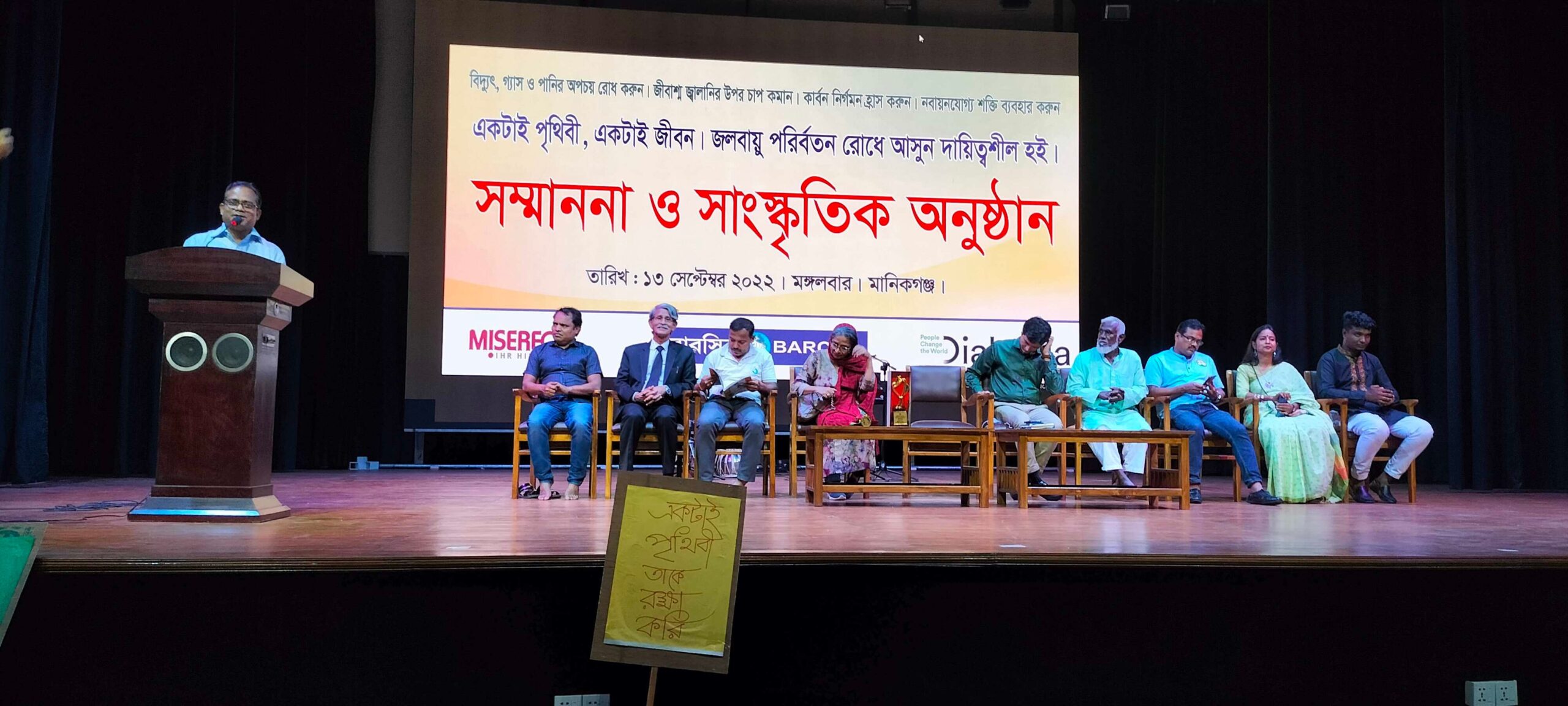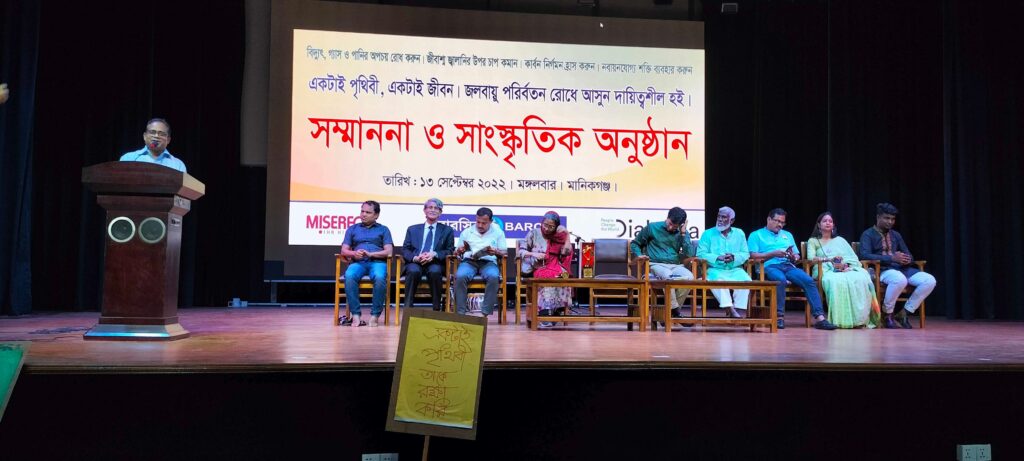Staff correspondent
Muhammad Abdul Latif, Deputy Commissioner of Manikganj asked the developing countries to facilitate renewable energy and other technologies to decrease the carbon emission.
“We contribute very little to carbon emission. It is the developed countries who are responsible for this impact of climate change. So they must compensate us so that we can avail all the facilities to deal with the negative impact of climate change,” He made this comment at a people’s dialogue titled ‘Climate Justice’ organised by Bangladesh Resource Centre for Indigenous knowledge at the Manikganj Shilpakala Academy on Tuesday at the concluding event.
Referring to the present status of Manikganj environment, Md Sanaul Haque, Assistant Deputy Commissioner of Mankiganj noted that all the water bodies have become worsened due to human activities.

“We have to change our behavior to save our environment and for this we need to work all together,” he added.
However, Biodiversity expert Paval Partha said that the developed countries industrial establishment is responsible for this climate and environmental degradation.
“Such climate damage due to the negative impact of climate change is directly or indirectly causing enormous pains for the people of the developing countries who are not responsible, so they must deserve compensation from the developed countries,” he demanded.
He also noted that climate change impacts cause different consequences such as inundation in the low lying coastal areas of Bangladesh, increasing conflicts and fight between local communities over local resources, water and foods.
Sayed Ali Biswas, an Anthropologist, said that the developed countries’ industries supply the kind of products which are destroying our natural elements and also the soul sources of human beings.
“For living we depend on water, air, light, natural resources and other elements of the planet which are integral parts of our lives. And these multinational companies have destroyed all the resources. They have increased the carbon emission for which now we are facing a great threat. So they must pay us back for this crime,” he told the Daily Observer. Advocate Dipok, an environment activist said that local people must realize the bad impact of chemicals and should follow some sustainable practices. We have to disseminate this indigenous knowledge among our people to protect our local ecology and biodiversity.
Mizanur Rahman, representatives of the youth community, said that they worked as a group to save the rivers from the pollution and also arranged mass awareness so that people would not throw dangerous items like plastic bottles.
He also urged the government policy makers to take them as a part of the climate related decision making so that their expectation with regards to climate related issues would come into reality. Mir Nadim, a volunteer, noted that the local agricultural instruments and seeds preservation is very important to ensure sustainable development.
Golam Sarowar Chanu,, President Manikganj Press Club, Atindro Chakraborti Biplob, General Secretary of Manikganj Press Club, Daily Star reporter Md Jahangir Alam Biswas, Development activist Sakiba President of District Krishi Unnoyan Forum Karam Ali Master, Khatun, Social Activist Md IQbal Khan, Program Officer of BARCIK Rashida Akhter and local cultural activists and the representatives of youth also spoke at the event.
However, the organization also arranged a fair of indigenous seeds and plants to demonstrate how uncultivated these plants and vegetables can be a great source of foods and nutrition.
Source: Daily Observer, Wednesday, 14 September, 2022 at 12:00 AM

